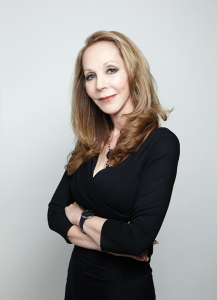Flourishing in the Company of Like-Minded People
 © Photo by Brad DeCecco
© Photo by Brad DeCecco I WAS, UNTIL QUITE RECENTLY, unaware of the existence of the secular humanist community, organized around the values of rationality, free inquiry, and the right that each of us has to flourish in this life—the only life that any of us will ever have. I had long believed, with all my being, in these values. But the process that had brought me to my conclusions didn’t connect me with any normative community, organized around shared values. In fact, I tended to think of normative communities as strictly religious communities.
I had been raised in one such community, and my journey out of it was silent, solitary, and estranged. For many decades after I’d thought my way out of the belief system into which I’d been born and indoctrinated, I didn’t speak a word of my internal dissent. I shied away from causing any discomfort to those closest to me, fearing that the rejection of their beliefs would be felt as a rejection of them. And my reluctance to cause such discomfort was compounded by the female “modesty” that had been pounded into my psyche since earliest childhood, a modesty interpreted so broadly as to merge into self-effacement. Mine certainly is not the only religious tradition that asserts strict control over its women, the sartorial draping heavy with the symbolism of disappearance. The sense that there is something shameful in the very state of being a female is quite effective in stifling demurral.
Nevertheless, demur I did, though ever so demurely. I found the books I needed to read, thought the thoughts I needed to think, and repeated the process. Read, reflect, repeat. I trained myself to go through the motions of religious obedience as mindlessly as possible, even when they offended the conclusions at which I’d arrived—which was constantly. I sought my solace in the fact that, no matter how constrained my external behavior might be, nobody could assert his authority over the autonomy of my mind. I’d do what was asked of me, but they couldn’t get at my thoughts. For decades, I told myself that was the only autonomy I required.
But of course it wasn’t. Such a split between one’s inner and outer selves exacts its toll. The bloody inconvenience of the intrusive religious requirements, very onerous in the particular tradition that bound up my life, was the least of it. More serious was the loneliness of inhabiting a place of unvoiced convictions, forever foregoing the give-and-take promoted by mutual respect. For me, every thought I had was first rigorously assessed before it was expressed, not only for its soundness but also for its possible potential to give offense. As time went on, and my thinking progressed, the proportion of propositions that failed to meet the second requirement began to dominate. That’s a lonely space in which to be confined.
But far more debilitating was the damage delivered to my sense of integrity. Yes, I could tell myself that I was behaving as I was out of regard for others, particularly my family, who would be privately pained and publicly humiliated by my speaking my thoughts. And, too, I could be scrupulous, as I tried to be, in never professing beliefs I didn’t possess, in keeping mum while I went through the motions. Still, my observance itself spoke assent to propositions I vehemently rejected, and the clash between convictions and actions gradually chipped away at my sense of integrity.
It’s an interesting word, integrity, sharing its root with the words integer, meaning a whole number, and integrate. In other words, this term that refers to a high level of moral achievement also speaks of wholeness. Is it possible to be a person of integrity while maintaining a radical bifurcation between one’s outer and inner lives? And if that inner life should value rationality, free inquiry, and the right of us all to flourish to our fullest, then how can you keep silent about the conclusions to which your rational free inquiry has brought you? How can you deny for yourself the right to flourish in the company of like-minded people who will not disapprove of you for subjecting your beliefs and actions to the standards of rational accountability? If you believe in the integrity of your conclusions then you must show them to the world, making the case for them not only by the arguments you hash out in the privacy of your own mind but by the life that you publicly lead. There was a lot I had to overcome—not least of all that blasted female modesty—before I could follow through on this line of reasoning.
Betraying Spinoza: The Renegade Jew Who Gave Us Modernity was the eighth book I’d published, but it was the first in which I took the long-delayed and irrevocable step of integrating my private and public selves. Integrity is, like all the virtues, its own reward, but an additional reward came to me as a result of publishing that book. The humanist movement, of which I’d been ignorant, reached out to me. I have to say that at first I was stunned. I’d never imagined a movement composed of freethinkers. There seemed something, at first, almost paradoxical about it. But that’s only because for so long I’d thought that the price of integrity, at least for a person like me, had to be estrangement and solitude, a forfeiting of the support and solace of community. Secular humanism proves otherwise.
